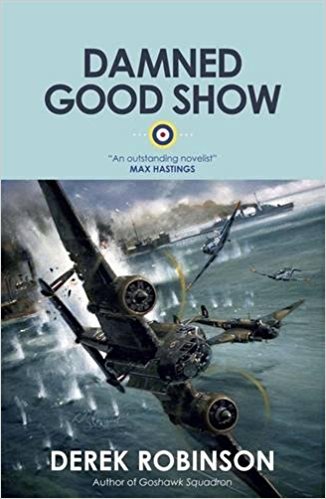Blackett's War: The Men Who Defeated the Nazi U-Boats and Brought Science to the Art of Warfare
By Stephen Budiansky
Stephen Budiansky, a journalist and military historian,[1] prefaces his book with a bold statement: "From 1941 to 1943, a small group of British and American scientists, almost entirely without military experience or knowledge, revolutionized the way wars are run and won. Applying the basic tools of their trade—a thoroughly scientific mindset backed by little more than simple mathematics and probability theory—they repeatedly demonstrated to disbelieving admirals and generals ways to double or triple the effectiveness of the faltering Allied campaign against the German U-boats" (ix). Budiansky's book concentrates on the U-boat war that pitted dedicated British scientists against equally adept and resourceful German scientists, whilst sailors on both sides suffered and very often died...
After Churchill became Prime Minister, he acquired a forceful, impetuous scientific adviser, Prof. Frederick Lindemann (later Lord Cherwell). To the rest of the scientific community, this was a mixed blessing: while Lindemann convinced Churchill of the value of science, he often allowed his own pet schemes to absorb scarce resources and clung to his positions long after they had been discredited. Blackett joked: "If anyone in the Air Ministry [aligned with Lindemann] 'added two and two together to make four,' suspicions would arise that 'he had been talking to Tizard and Blackett' and was 'not to be trusted'" (201). Blackett summed up the myopic service response to one scientific report: "Let us have no more of these miserable statistics, which only paralyse the brain and freeze the blood" (202).
Churchill, nevertheless, called for a statistics department to provide him with a steady flow of data, and enthusiastically showered the scientific community with often impracticable Churchill-Lindemann research projects. One of these, however, the degaussing of ships, proved spectacularly successful (106). Statistics and intelligence overlay the U-boat war, but the Government Code and Cipher School (GC&CS) was stuck in a time warp. "Of the twenty-one academics brought into GC&CS during the first weeks of the war, only three were mathematicians. All the rest were from the humanities and came through the usual channels; they had, in the words of GC&CS's head, Alastair Dennison, been recruited by 'men now in senior positions' at Oxford and Cambridge who 'had worked in our ranks during 1914–18'" (109). Early output from GC&CS's home, Bletchley Park, often met service apathy. Having broken the German merchant navy's code, Bletchley informed the Admiralty that German ships heading for Bergen had been ordered to report their position at stated intervals to the War Office in Berlin. An Admiralty staff officer rebuffed this valuable information as nonsense: ships would report to naval headquarters not army headquarters. Hitler invaded Norway shortly afterwards (111).
Asdic, radar, and increasingly centralized control of British anti-U-boat scientific research and operations gradually made an impact. From the U-boat perspective, the Happy Time they had enjoyed before the science-aided Royal Navy began to sink many of their number gave way to gloom. (There was a brief, second Happy Time when overconfident America entered the war and offered easy targets against its still illuminated eastern seaboard.) Budiansky describes the lives of U-boat personnel in considerable detail, from their final moments in 1918 (4) through their arduous but well rewarded duty in World War II (120) up to their second surrender in 1945 (250–51).
When America entered the war in December 1941, it underwent the same learning curve that the British had endured two years earlier. "The command structure of the U.S. Navy was a holy mess. Responsibility for antisubmarine warfare was split among a dozen different commands; no one was in charge. Actual control of antisubmarine patrols along the Atlantic coast rested with the admirals who commanded the separate naval districts based at each of the major ports … but the ships themselves belonged to the Atlantic Fleet" (177). The man President Franklin Roosevelt appointed Navy commander in chief after Pearl Harbor, Admiral Ernest King, was brilliant, capable, and confident, but also bullheaded, ruthless, and vindictive (178). Indeed, King's own daughter allegedly observed "My father is the most even-tempered man in the navy. He is always in a rage" (179). Under King's direction, US capability and US-British military and scientific cooperation gradually improved. "In late March [1943] the first American escort carriers began appearing in the Atlantic; these were small ships that carried twenty-four fighters and navy attack planes and extended air cover across the Atlantic to the convoys" (242). In Britain, Bletchley Park had made several crucial breakthroughs, and by November 1943, science, intelligence, and the two navies had broken U-boat morale: "an increasing number of [U-]boats were declaring 'mechanical difficulties' during their outbound transit of the Bay of Biscay and turning back to port" (244)...
http://www.miwsr.com/2013-094.aspx






